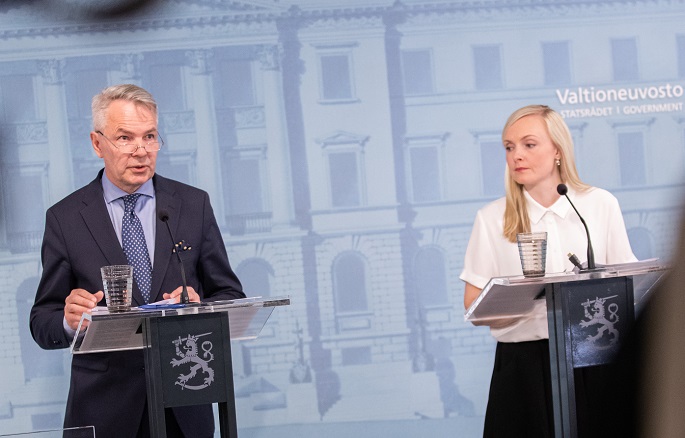Finland to ease travel bar with more countries, Sweden excluded
Published : 24 Jun 2020, 02:21
Updated : 24 Jun 2020, 09:09
The government in a meeting on Tuesday decided to lift travel restrictions with 12 more countries from 13 July, said an official press release.
The meeting decided that it would lift the internal border control and restrictions on traffic between Finland and countries where the incidence of COVID-19 is similar to that in the countries with which the internal border control has already been lifted.
Based on the current development of the epidemic, internal border control could therefore be lifted for Schengen countries: Germany, Italy, Austria, Greece, Switzerland, Slovakia, Slovenia, Hungary and Liechtenstein. In addition, travel to Finland from Croatia, Cyprus and Ireland, which are EU member states but not part of the Schengen area, would be allowed.
However, the government will continue to assess the overall situation in the Schengen area and the EU member states until 10 July and will update the list of countries based on the development of the epidemic at that time.
Earlier, Finland eased border control with the Nordic countries Norway, Denmark, and Iceland and the Baltic countries Estonia, Latvia, and Lithuania.
At present, the limit value is a maximum of eight new cases of the disease per 100,000 persons in the previous 14 days.
The government, however, decided to continue border restrictions with the Netherlands, Belgium, Spain, Luxembourg, Malta, Portugal, Poland, France, Sweden, and the Czech Republic, with the exception of leisure boating.
Foreign Minister Pekka Haavisto at a press conference underlined the long-standing good relationship between the neighbouring countries Finland and Sweden. He said Finland would be willing to give practical assistance to Sweden, for example, with the ICU capacity.
Meanwhile, the government stated that the recommendation on extensive remote work would end on 1 August due to the improved epidemiological situation.
The summer holiday season in July will allow for a flexible, step-by-step transition towards normal working conditions.
The government will no longer issue an age-based recommendation to avoid physical contact. However, in close contacts, it is advisable to take a cautious approach using individual discretion and taking the overall situation and the individual risk factors into account.
Avoiding close contacts has been effective in protecting older people from coronavirus infections. Nevertheless, despite its benefits, the practical implementation of the recommendation has also had negative impacts on the physical, psychological, and social wellbeing and functional capacity of people over 70 years of age.


